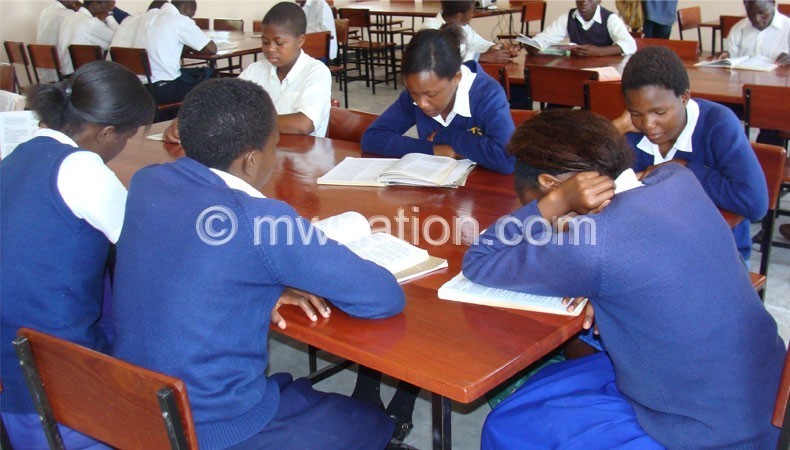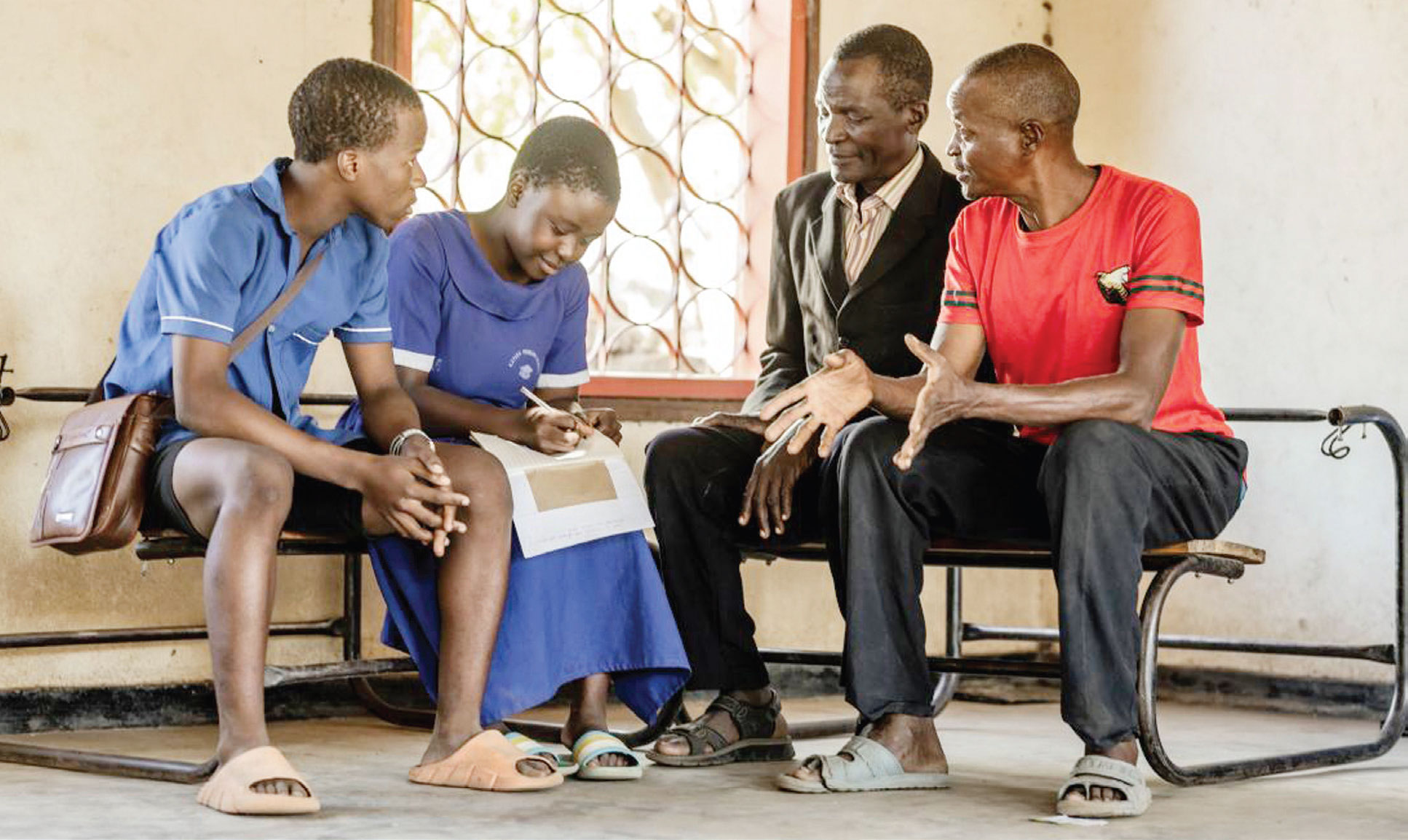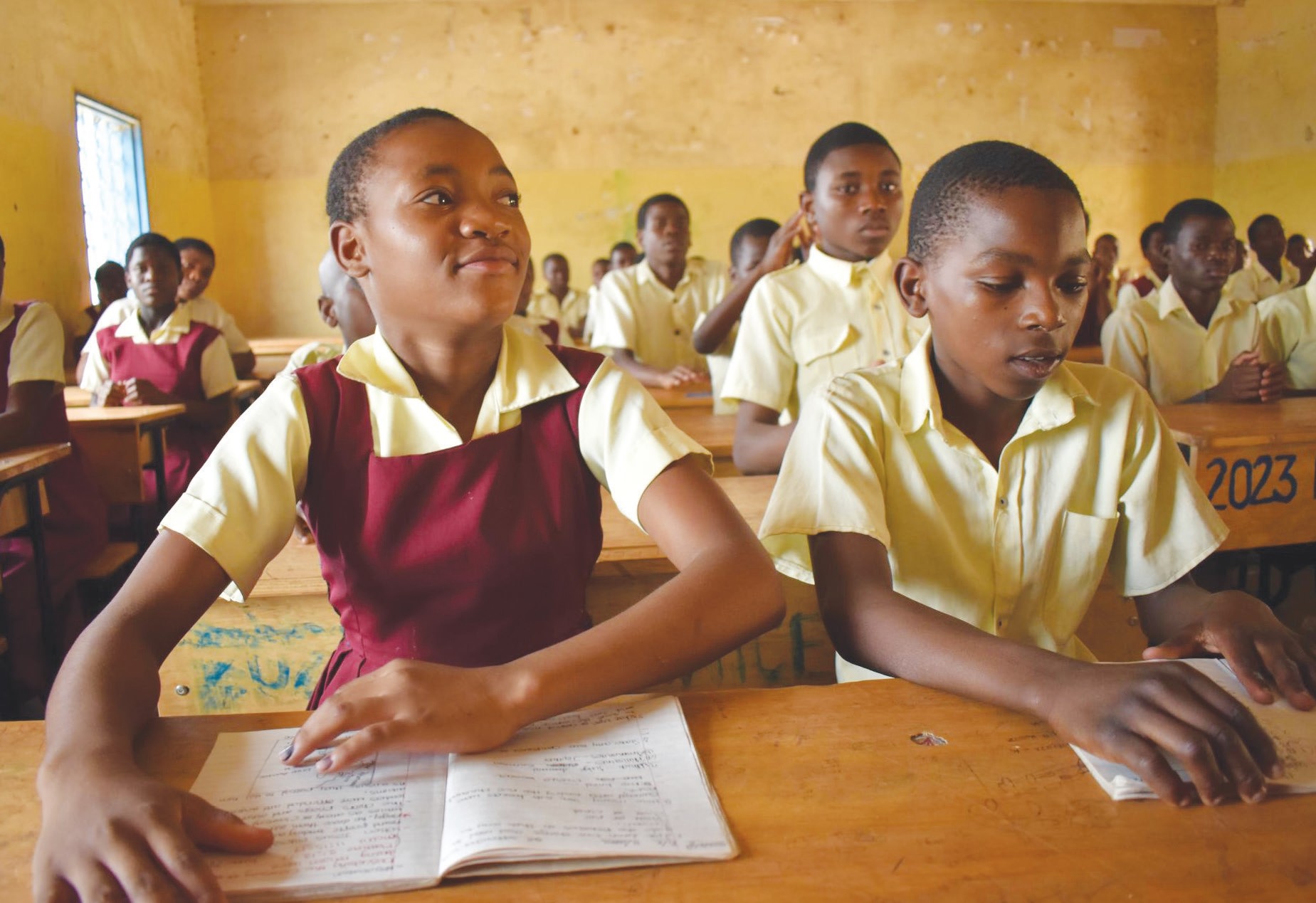Inspiring girls to return to school
Enala Ngulu, 35, who was forced into marriage at 13, re-enrolled for Standard Eight at Lusako Primary School in Karonga District.
It was not an easy decision. She became a laughing stock, particularly because she had to take classes together with her children. But this never bothered her.

“I wanted to mend my battered life and make use of the chances I lost as a teenager,” Ngulu says.
As a mother, being enrolled together with children was not easy for her. Some pupils would mock her, while others thought she was one of the teachers at the school.
However, Ngulu paid a blind eye to all this and stayed focused on her goal—to get educated and free herself from the shackles of poverty in her polygamous marriage.
“It was not easy to feed my children,” says Ngulu, who has six children.
The genesis of her troubles was in 1994 when she was forced into marriage by her aunt after the death of her parents.
As Ngulu testifies, poverty is the driving factor of forced marriages.
In Karonga, such incidences are fuelled by the cultural practice of kupimbira, whereby parents give their young daughters in marriage as repayment for a debt.
“My aunt wanted to benefit from lobola [bride price]. But I never knew that the suitor already had two wives,” she says.
Her aunt may have been richer after receiving the bride price from the man, a health surveillance assistant in the area, who already had two wives and 10 children living under one roof.
But, Ngulu says: “Life was never easy when I got married. We lacked basic things such as soap, food, clothes and land for cultivation. These problems forced me to return to school.”
It was in 2008 that Ngulu made up her mind and returned to primary school. Her decision surprised a lot of people in the area, although government has a re-admission policy for mothers.
“My husband encouraged me to pursue my dream. But his parents protested. They thought I was scheming to hook up with male teachers. Most people in our community had the same thoughts,” she says.
Ngulu wrote the Primary School Leaving Certificate examination in 2012. She was then selected to Chilumba Secondary School in the same district.
That year, 14 learners in a class of 90 at the school passed the national examinations. She was the only one selected to boarding school.
Although Ngulu had the passion of completing her education, lack of fees was her major concern.
“I did not know where to get school fees to enrol at Chilumba Secondary School because my family had huge financial problems,” she says.
But lady luck was on her side. The Foundation for Community Support Services (Focus) had heard about her predicament. The Karonga-based organisation was willing to support her until she completed her secondary school education.
In 2015, she wrote the Malawi School Certificate of Education (MSCE) and passed with 36 points.
Although Ngulu did not make it to university, her decision to return to school has proved to be a worthwhile undertaking. She is now a role model for women and girls in her community that one can return to school regardless of their age and circumstances.
In May last year, she was sponsored to attend the Kigali Declaration Conference in Rwanda as an ambassador against child marriages.
In November the same year, she went to Malta where she gave presentations on child, early and forced marriages in Malawi.
CCAP Synod of Livingstonia’s Church and Society Programme child protection expert Hughes Chinkhuntha says Ngulu’s case shows the power of education overcoming early marriage.
A 2012 United Nations survey indicates that more than half of Malawi’s girls are married before the age of 18.
Nonetheless, Chinkhuntha observes that the mockery Ngulu underwent at the primary school presents a larger picture mothers who want to return to school face.
He says mothers or girls who are re-admitted into schools lack psychosocial support to withstand ridicule for leaving a marriage.
“That is the gap we need to address,” says Chinkhuntha, adding: “When girls are withdrawn from marriages to return to school, there is trauma that is left unattended to.”
He says if the trauma is left unattended to, it is easy for the girls or mothers to be discouraged and return to their earlier marriages.
“They need to be counselled by trained counsellors to withstand the pressure that the society gives. However, Ngulu needs to be commended because she is an example of a brave person who knew what she wanted to achieve in life,” says Chinkhuntha.
Presently, Ngulu is employed by Focus as an officer who looks into issues of child, early and forced marriages.
When she raises enough funds, she plans to enrol for a gender course at the University of Livingstonia.





